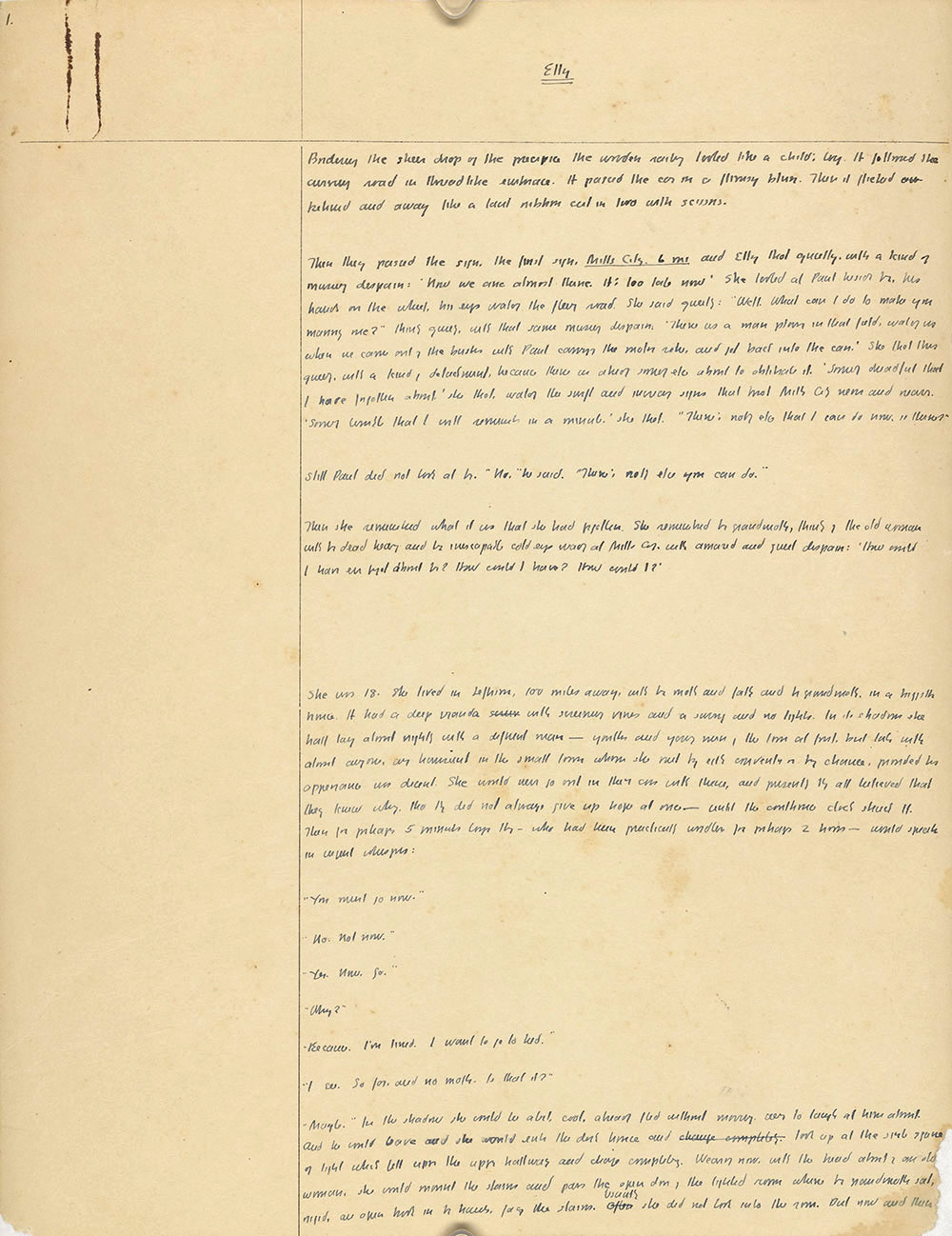TRANSCRIPTION
Elly
Bordering the sheer drop of the precipice the wooden railing looked like a child's toy. It followed the
curving road in threadlike embrace. It passed the car in a flimsy blur. Then it clicked <aw>
behind and away like a taut ribbon cut in two with scissors.
Then they passed the sign, the first sign, Mills City. 6 mi and Elly thought quietly, with a kind of
musing despair: 'Now we are almost there. It's too late now' She looked at Paul beside her, his
hands on the wheel, his eyes watching the fleeing road. She said quietly: "Well. What can I do to make you
marry me?" thinking quietly, with that same musing despair: 'There was a man plowing in that field, watching us
when we came out of the bushes with Paul carrying the motor robe, and got back into the car.' She thought this
queerly, with a kind of detachment, because there was ahead something else about to obliterate it. 'Something dreadful that
I have forgotten about,' she thought, watching the swift and increasing signs that brought Mills City nearer and nearer.
'Something terrible that I will remember in a minute,' she thought. "There's nothing else that I can do now, is there?"
Still Paul did not look at her. "No," he said. "There's nothing else you can do."
Then she remembered what it was that she had forgotten. She remembered her grandmother, thinking of the old woman
with her dead hearing and her inescapable cold eyes waiting at Mills City, with amazed and quiet despair: 'How could
I had ever forgot about her? How could I have? How could I?'
She was 18. She lived in Jefferson, 100 miles away, with her mother and father and her grandmother, in a biggish
house. It had a deep veranda <screen> with screening vines and a swing and no lights. In its shadows she
half lay almost nightly with a different man – youths and young men, the town at first, but later with
almost anyone, any transient in the small town whom she met by either convention or by chance, provided his
appearance was decent. She would never go out in their cars with them, and presently they all believed that
they knew why, though they did not always give up hope at once – until the courthouse clock struck 11.
Then for perhaps 5 minutes longer they – who had been practically wordless for perhaps 2 hours – would speak
in urgent whispers:
"You must go now."
No. Not now."
"Yes. Now. Go."
"Why?"
"Because. I'm tired. I want to go to bed."
"I see. So far, and no mother. Is that it?"
"Maybe." In the shadow she would be alert, cool, already fled without moving, [illegible] to laugh at him almost.
And he would leave and she would enter the dark house and <change completely.> look up at the single square
of light which fell upon the upper hallway and change completely. Weary now, with the tread almost of an old
woman, she would mount the stairs and pass the open door, the lighted room where her grandmother sat,
rigid, an open book in her hands, facing the stairs. <After> Usually she did not look into the room. But now and then
|


